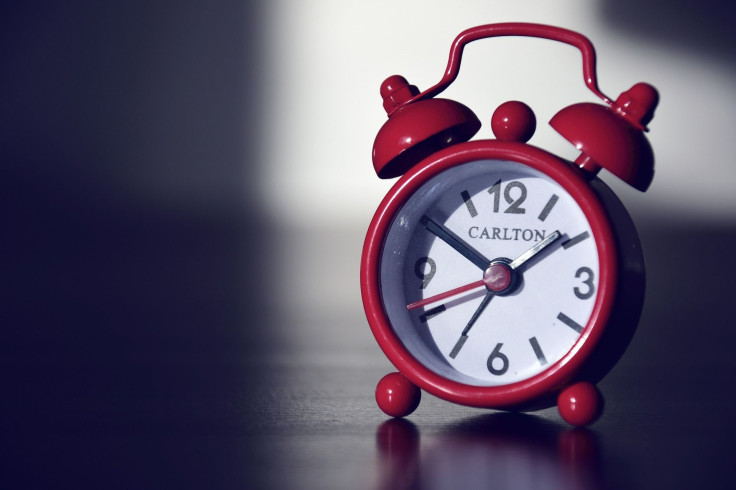Daylight Saving Time May Increase Risk For Heart Attack And Stroke: How To Prep For The Change

This Sunday, 2 a.m. will spring ahead to 3 a.m., and while our social lives might appreciate daylight saving time (DST), our bodies might be a little confused. And for the many Americans already struggling with sleep deprivation, losing an hour can be an even bigger deal.
"When we implement small changes into a biological system which by themselves seem trivial, their effects, when viewed in a broader context, may have a much larger impact than we had thought," said Till Roennburg, of Ludwig-Maximillian University in Munich, in a statement. "While we generally think the time changes enforced by the DST transitions are 'only an hour,' they have far more drastic effects if viewed in the context of the circadian clock’s seasonal changes."
Roennburg co-authored a 2007 study that suggests DST may unintentionally affect human physiology, primarily the human circadian clock. The body's internal clock uses daylight to stay in sync with the environment as seasons change — and DST may disrupt this process. As Roennburg put it, DST is like transporting the entire population of a country to a totally different environment in the spring, and then bringing them back again in autumn. Though many of the negative health effects associated with the disruption seem to be related to sleep deprivation, it's the suddenness of the change that may lead to worse health outcomes.
A study from the American Academy of Neurology suggests DST can increase the risk for stroke by 25 percent in cancer patients and 20 percent in those over the age of 65. Reuters reported DST may also raise the risk of having a heart attack the following Monday by 25 percent, while Telegram & Gazette cited the change can increase risk for traffic fatalities by 17 percent.
The good news is there are steps you can take to ensure you make a smooth and healthy transition into spring. For starters, try setting your alarm a tad earlier on the Friday and Saturday before DST to better help the body acclimate to the new time. Cutting back on caffeine and alcohol can help with this. Keep in mind that food and sunlight also help signal that the day is beginning, giving the body’s internal clock a jump.
Another way to prep for DST is to avoid electronics immediately before bed. Smartphones and e-readers could make you sleepy, but the light these devices emit can negatively affect the circadian clock.
"Light is the principal environmental cue," Dr. Michael J. Breus, a clinical psychologist and author of the best-seller Good Night: The Sleep Doctor’s 4-Week Program to Better Sleep and Better Health, told WebMD. "Light suppresses the secretion of the sleep-inducing substance melatonin. So it is important to expose yourself to the light during the waking hours as much as possible, and conversely, do not expose yourself to bright light when it is dark outside."
Breus also recommended following calming rituals before bed to gradually relax, such as taking a hot bath, wearing an eye mask, and reaching for a healthy midnight snack to help you fall asleep.
It might be tough at first, but generally speaking, it only takes about a day to adjust for each hour of time change, Breus said. And if nothing else, DST means we're that much closer to warmer weather.



























